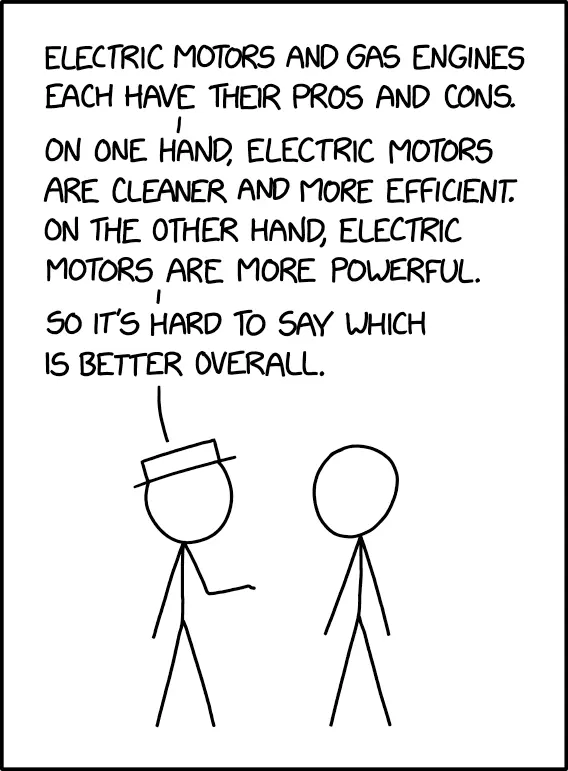xkcd #2948: Electric vs Gas
xkcd #2948: Electric vs Gas

xkcd.com
Electric vs Gas

Alt text:
An idling gas engine may be annoyingly loud, but that's the price you pay for having WAY less torque available at a standstill.
xkcd #2948: Electric vs Gas

Electric vs Gas

Alt text:
An idling gas engine may be annoyingly loud, but that's the price you pay for having WAY less torque available at a standstill.